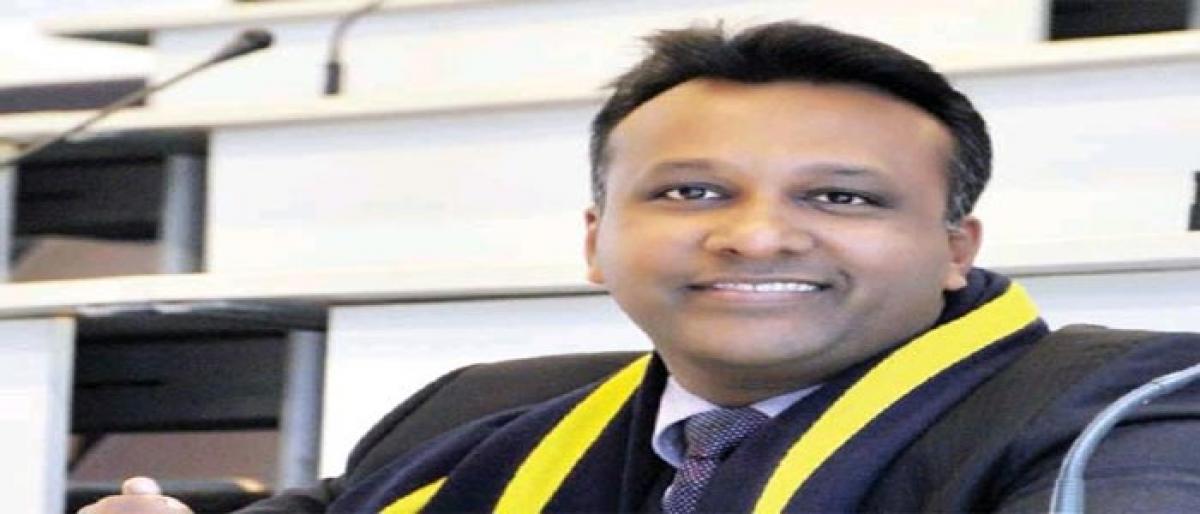Live
- AHUDA chief Varun gets grand welcome
- Instil moral values in students
- Somishetty takes charge as KUDA chairman
- Foundation partners with BBMP to revamp Bengaluru’s iconic Church Street
- World Diabetes Day observed at Gem Care Kamineni Hospital
- Rural students told to pursue higher education
- Fishery activities get a big boost in TDP budget
- Today’s welfare measures aim to empower: Nirmala Sitharaman
- Six scholars, including two women, win Infosys Prize 2024
- Gurukula zonal level sports meet concludes
Just In

Legal education in India has transformed from its early origins as a professional practice of law in courts to an autonomous discipline of law that fulfils a broader set of social, economic and educational goals and aspirations, the founding Vice Chancellor of the O.P. Jindal Global University C. Raj Kumar said at a function to mark the 200th year of the Harvard Law School.
Sonepat: Legal education in India has transformed from its early origins as a professional practice of law in courts to an autonomous discipline of law that fulfils a broader set of social, economic and educational goals and aspirations, the founding Vice Chancellor of the O.P. Jindal Global University C. Raj Kumar said at a function to mark the 200th year of the Harvard Law School.
"The evolution of legal education in India has raised the standards of the legal profession and has further accentuated the impact of economic globalisation in a range of legal services.
This trend will continue as the new generation of law schools in India such as the National Law Schools and a few select not-for-profit private law schools such as the Jindal Global Law School are raising academic standards, providing research opportunities to faculty and students and contributing to the knowledge creation and publications, while training the next generation of global lawyers" a statement issued here quoted him as saying.
Legal education and legal profession in India need to drive the agenda for social, economic, and institutional reforms.
The globalisation of legal profession has impacted the nature and context of legal practice in India but a vast number of law schools and lawyers are not prepared to effectively address this change, he added.
Taking the Jindal Global Law School as a case study, Kumar articulated the vision for global legal education and how developing countries in Asia and Africa need to play a leadership role in the establishment of standards and participation in providing high quality legal services.
"But unlike the law schools in the developed world, legal education in Asia and Africa will have a strong dimension of social engineering and seeking the role of law as an instrument of social change.
It will need to address issues of systemic and institutionalised forms of injustices perpetrated due to corruption, discrimination and authoritarianism.
"Legal education and the legal profession is called upon to make democracies function effectively on the basis of the rule of law and good governance so that the constitutional goals do not remain as unachievable rhetoric but become a reality through ensuring greater degree of transparency and accountability.
This is a particularly significant role that law ought to play in countries in Asia and Africa such as India," Kumar noted.
Kumar, a Rhodes Scholar and an alumnus of Harvard Law School, was the only lawyer and legal scholar from India to be invited to speak on special occasion October 26-27.
JGU was the only Indian university and Jindal Global Law School the only Indian law school at the event, which witnessed participation of over 250 speakers from around the world.

© 2024 Hyderabad Media House Limited/The Hans India. All rights reserved. Powered by hocalwire.com







